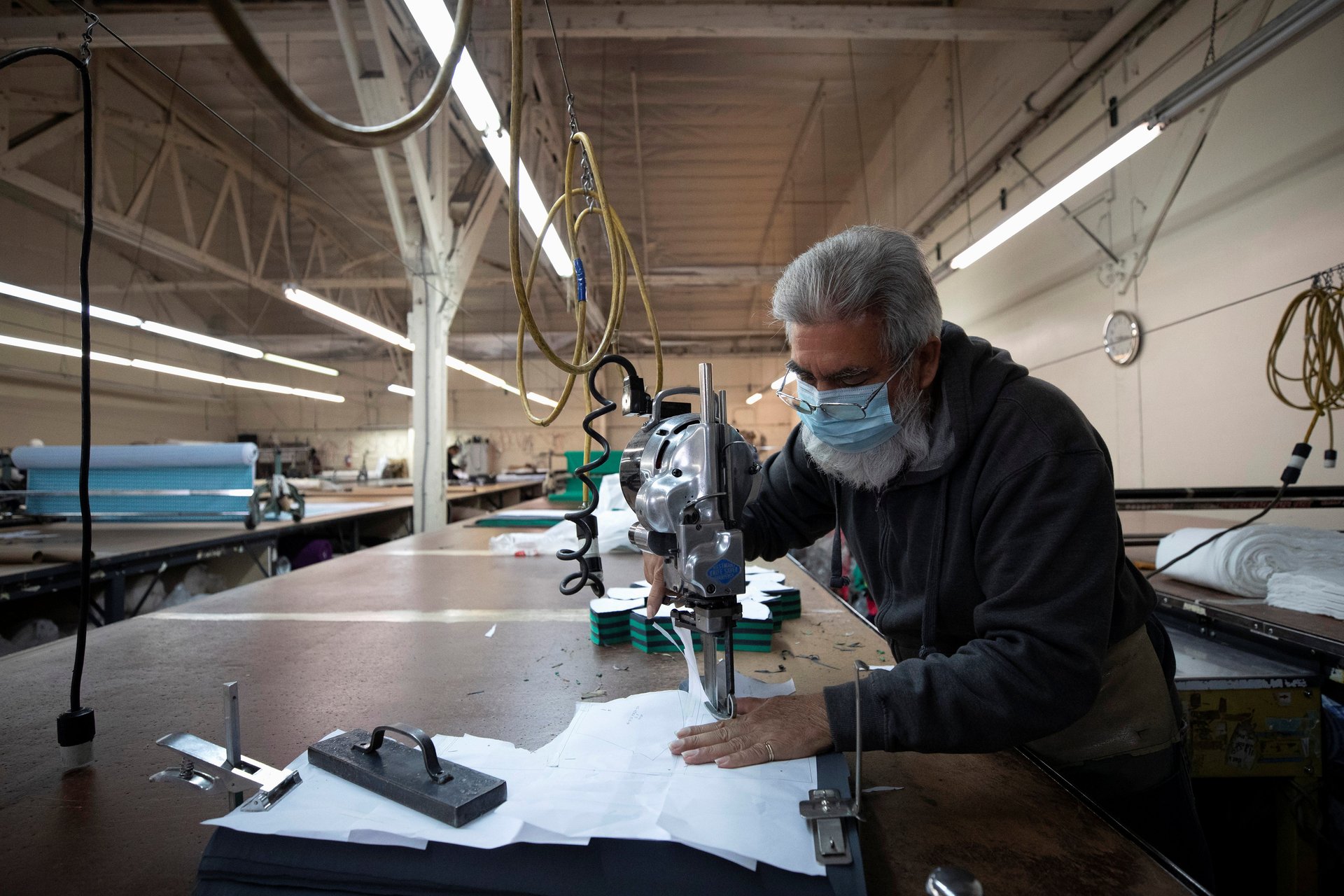Covid-19 is pushing Americans into early retirement
Along with the spike in US jobless claims, there’s been a historic drop in the number of Americans looking for work. A new study finds that early retirements almost fully explain the decline.


Along with the spike in US jobless claims, there’s been a historic drop in the number of Americans looking for work. A new study finds that early retirements almost fully explain the decline.
Severe recessions are known to create waves of “discouraged workers,” in which a portion of the unemployed simply stop looking for new jobs—and drop out of the dataset used to calculate the official unemployment rate, which excludes people who aren’t actively seeking work. The new research finds that the ranks of those planning to retire early are significantly higher than in previous downturns.
That might hold the official unemployment rate in check, but the employment-to-population ratio, which measures the share of all US adults who hold paid jobs, will plummet. And Michael Weber, an associate professor at the University of Chicago Booth School of Business and one of the study’s authors, says it’s “very unlikely” we’ll see a big bounce back in the ratio coming out of the recession.
That could have a huge impact on the US labor market. Over the past 20 years, the share of Americans working in their 70s has risen from less than 10% to nearly 15%, according to US census data. The US Bureau of Labor Statistics (BLS) had estimated that by 2024, some 44 million workers, or roughly 25% of the US labor force, would be 55 or older, including 13 million—or 7%—age 65 or older.
But Covid-19 could end up changing that. Weber, along with Olivier Coibion at University of Texas-Austin and Yuriy Gorodnichenko at University of California Berkeley, analyzed Nielsen data to show how the pandemic already has impacted the makeup of the US labor market.
While unemployment claims rose to an estimated 20 million in April, the researchers found that the unemployment rate rose only 2 percentage points from January’s 3.6% rate. That’s because the labor-participation rate dropped a dramatic 8 percentage points, from 64.2% to 56.8%. The findings reflect that most of the newly unemployed are not looking for work at this time.
The researchers surveyed people before and after the Covid-19 pandemic began, asking work-related questions similar to those asked on BLS surveys. They received roughly 18,000 responses in January and 10,000 in early April. Both surveys asked those who said they were neither working nor looking for a job to share the reason why.
Before the crisis, most respondents not in the labor force claimed it was because they were already retired, or because they were disabled, or homemakers, or did not need to work. Only 1.6% of those out of the labor force pointed to an inability to find a job as one of their reasons for not searching.
After the crisis began, with a larger share of people out of the labor force, the researchers found a decline in the share who said they were homemakers or disabled, and a large uptick in those who claim to be retired, from 53% to 60%.
Why are so many more people suddenly claiming to be retiring? There are probably several explanations, but a glaring one is this: Older adults are some of the most at-risk in this public health crisis. As a result, many of them, concerned for their own health, may choose not to look for work.
It’s hard to say whether the early-retirement trend will hold up. It’s possible that the exit of older workers will be permanent, eventually leading to more work opportunities for younger adults.
It’s also possible that people could come out of retirement once more of the economy is back up and running, particularly if their retirement savings get decimated in the markets.